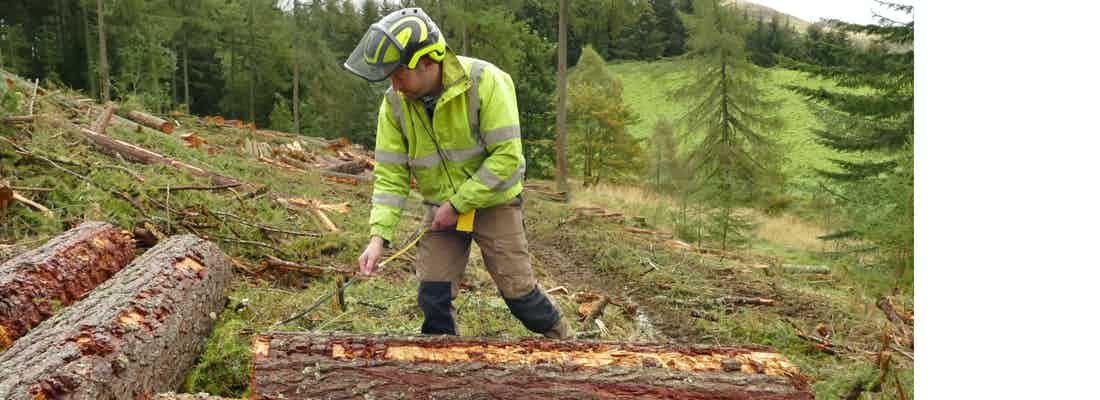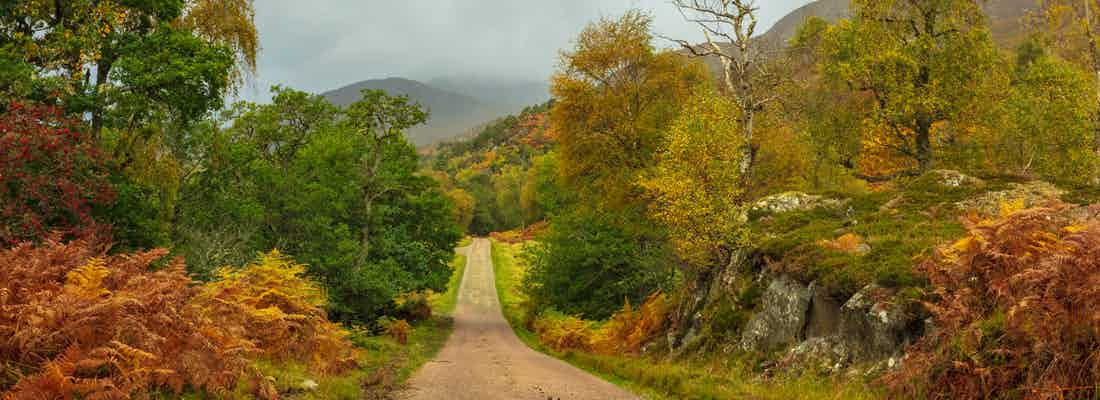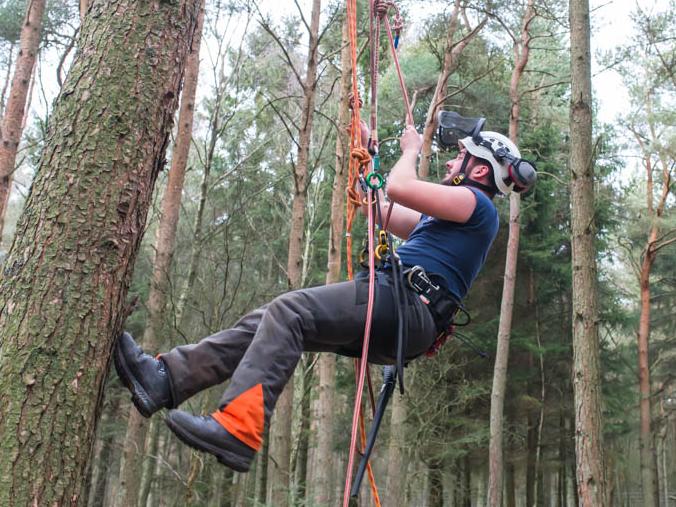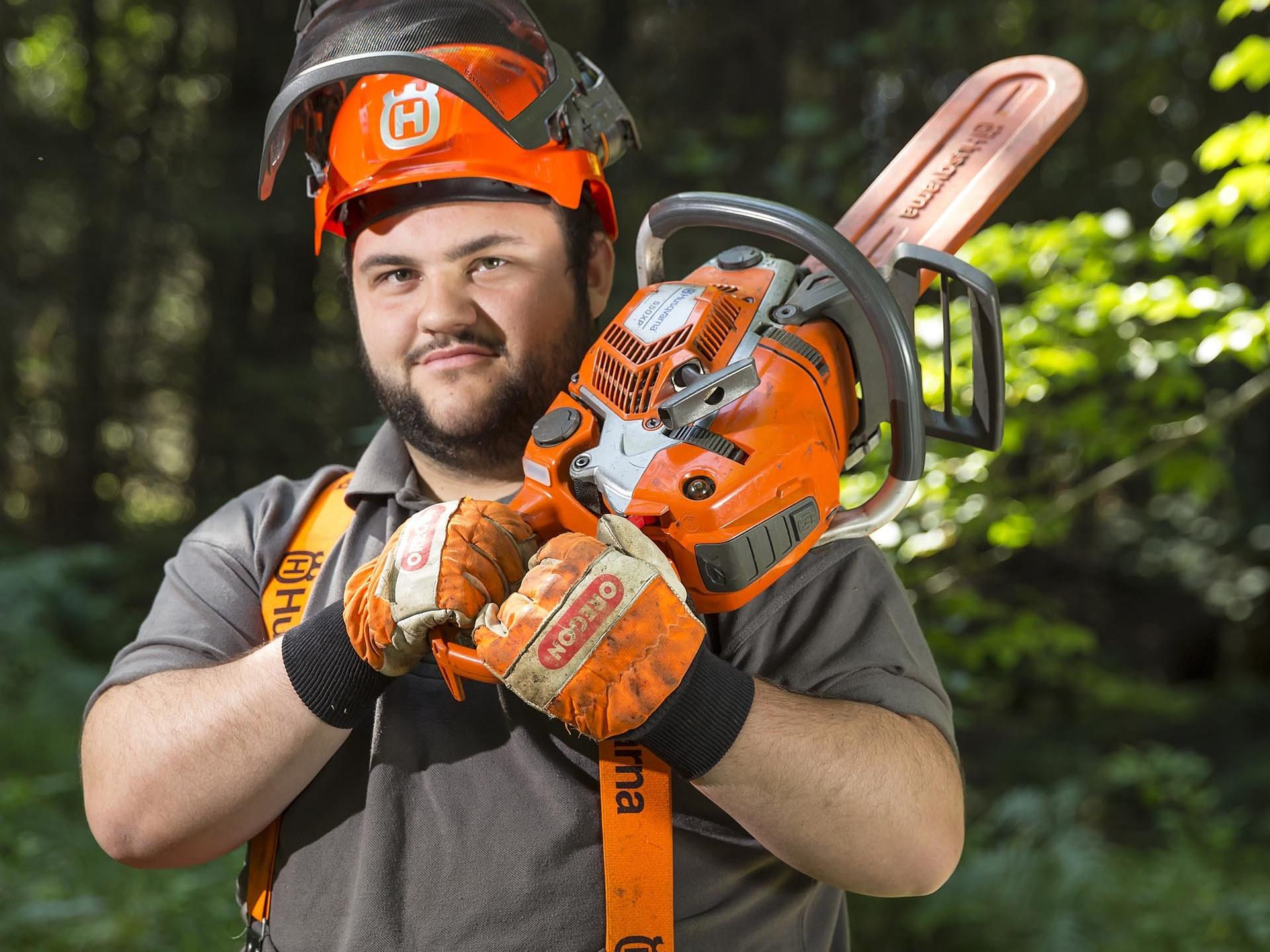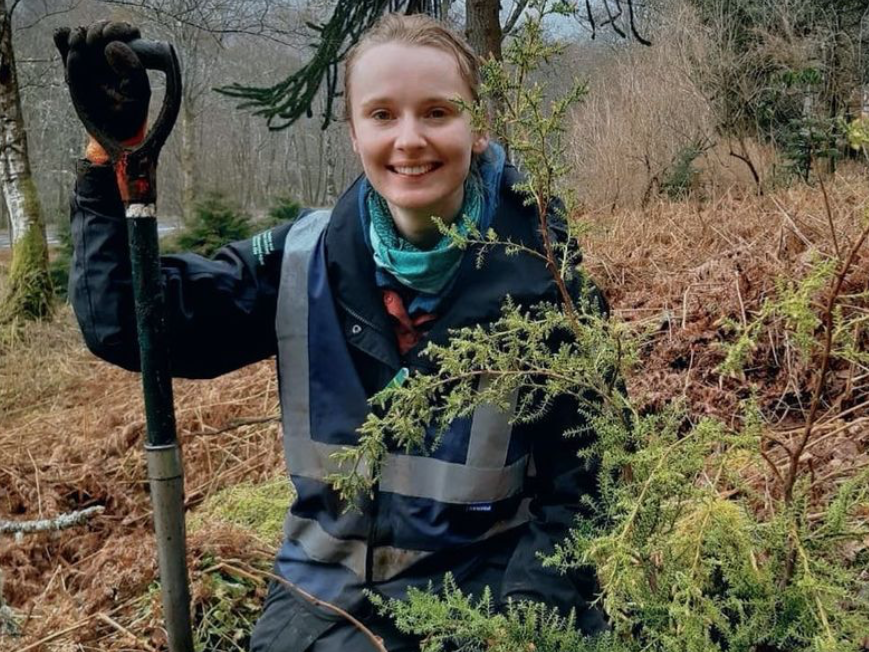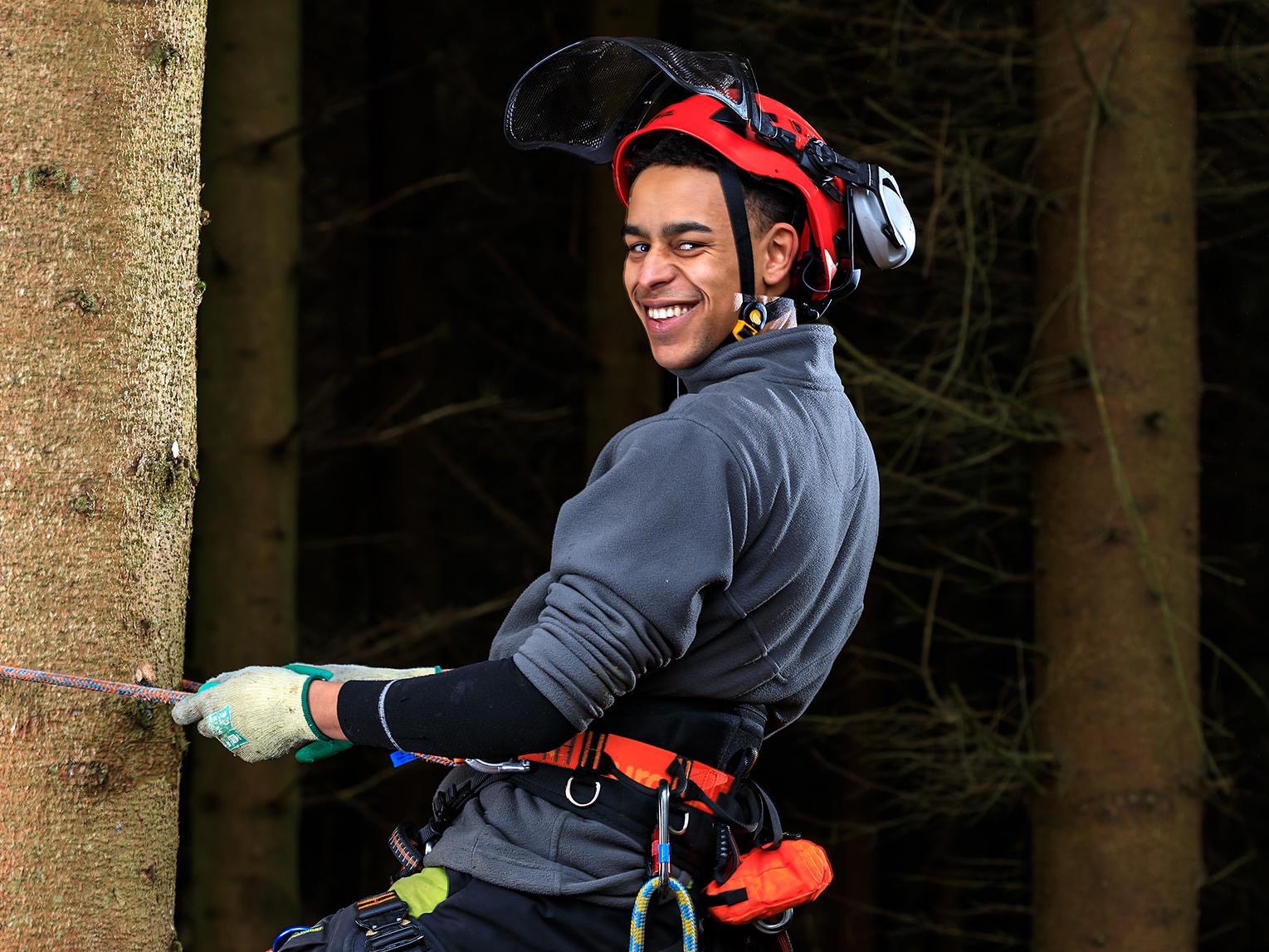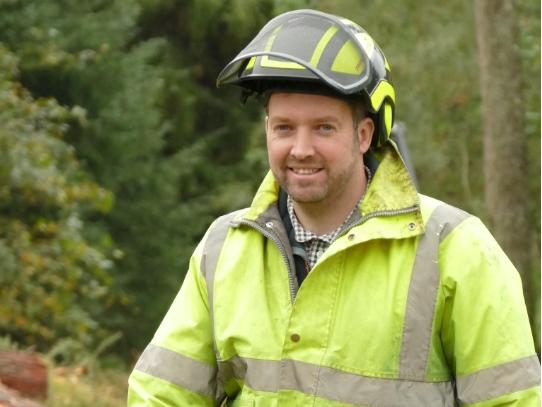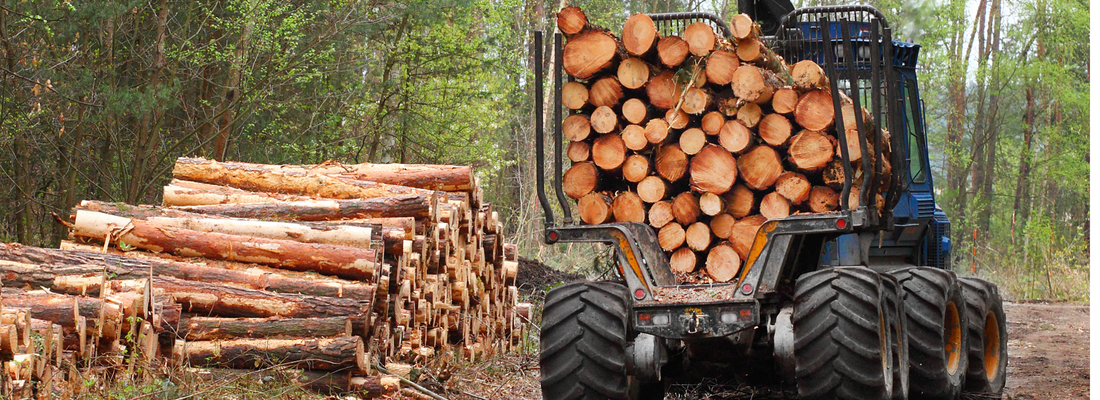
Forest Ranger
A Forest Ranger promotes awareness of the forest and protects and conserves the natural environment.
The role is usually within local authorities or Forestry Commission Scotland. Some large charitable organisations or commercial estates also employ forest rangers to lead in education and conservation projects. The work can be very varied and may include a mixture of practical forestry work and site management. Successful forest rangers are enthusiastic communicators and passionate about nature and conservation.
The practical work undertaken by Forest Rangers may include environmental assessments, field surveys, and managing habitats to maintain favourable conditions for wildlife.
They may also be called upon to make sure footpaths, bridleways and other public access areas are safe and to make minor repairs to gates, fences, stiles, walls, footpaths and picnic tables.
Forest Rangers may need to organise events, activities and projects to raise awareness of environmental conservation and increase community involvement. These activities may include environmental and conservation projects, or working with school groups on education activities.
Managerial work undertaken can involve marketing and control of budgets, preparing applications for funding or assessing planning applications. Forestry Rangers may also be involved in the recruitment and supervision of staff and volunteers.
Other work may involve managing exhibitions and visitor centres, and patrolling sites to ensure the responsible enjoyment of the woodland, reduce crime and protect the public and wildlife.
A Forest Ranger can also be called on to help tackle forest fires.
Depending on the area covered, there may be a significant amount of travelling between different sites. A driving licence may be required.
Working Conditions
Work can be physically demanding and Forest Rangers need to be prepared to work outdoors in a range of weather conditions.
Forest Rangers typically work full-time. However, the hours may vary, and weekend or Bank Holiday work may be required.
Salary
Salaries vary with experience, qualifications and between companies, but here's a guide to what you can expect.
£23,000
£28,000
Getting started
Work can be found in both urban and rural areas across the country. However, there is a lot of competition for paid work in this area and suitable experience is essential.
Employers are looking for people who:
- Are well organised and have good planning skills
- Have good written and verbal communication skills
- Have good numeracy
- ICT skills
- Have strong interpersonal and negotiation skills
- Are well informed about the profession, regulations and trends in the sector
What experienced workers can do
- Able to identify tree species and properties
- Able to manage planted areas
- Undertake surveys
- Communication skills
- ICT skills
- Able to establish and manage habitats
- Able to work with different community groups and organisations
- Good customer services
- Resource management
- Able to deliver talks.
Personal qualities you should have
- Energetic
- Passion for nature and working with people
- Flexible
- Good safety awareness
- Initiative.
Next steps
It may be possible to progress to higher grades within similar roles, taking on greater supervisory responsibility. However, this will vary depending upon the nature of the employer.
Progression beyond the role will tend to be into a more managerial role, which will involve less ‘hands-on’ practical work.
